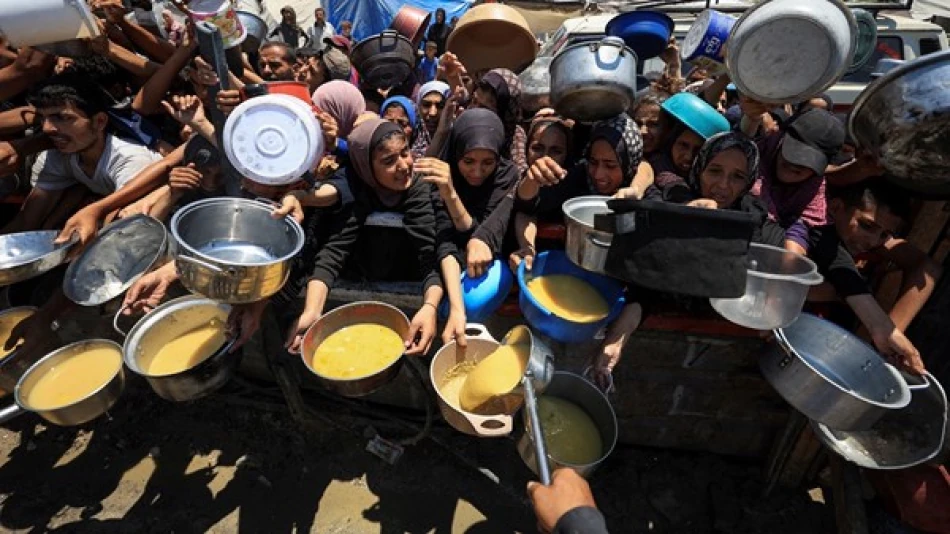
European Powers Demand Immediate End to Gaza's Humanitarian Catastrophe
European Powers Issue Urgent Gaza Humanitarian Ultimatum to Israel
France, Germany, and the United Kingdom delivered a rare joint diplomatic intervention Friday, demanding Israel immediately lift restrictions on humanitarian aid to Gaza and allow international organizations unfettered access to combat what they termed an unfolding "humanitarian catastrophe." The coordinated statement represents Europe's most direct challenge yet to Israeli policy in Gaza, signaling growing international impatience with the humanitarian crisis.
Diplomatic Pressure Reaches New Heights
The trilateral statement marks a significant escalation in European diplomatic pressure, with three of the continent's most influential powers speaking in unison. The timing suggests coordinated frustration within European capitals over the deteriorating humanitarian situation in Gaza, where international aid organizations have repeatedly warned of impending famine conditions.
The joint declaration specifically called on the Israeli government to "immediately lift restrictions imposed on aid delivery" and urgently allow the United Nations and non-governmental organizations to "carry out their work to combat famine." The statement also reminded Israel of its obligations under international humanitarian law.
Strategic Implications for Middle East Diplomacy
Breaking From Traditional Diplomatic Caution
This direct public rebuke represents a departure from the typically measured diplomatic language European powers have employed regarding Israeli military operations. The use of terms like "humanitarian catastrophe" and demands for "immediate" action suggest growing concern that private diplomatic channels have proven insufficient.
The coordinated nature of the statement—involving three nations with varying degrees of historical support for Israel—indicates a broader European consensus that humanitarian concerns now outweigh traditional diplomatic sensitivities.
International Law as Leverage
By explicitly invoking international humanitarian law, the three powers are establishing legal grounds for potential future action. This language creates a framework for escalated diplomatic pressure and potentially economic measures if humanitarian access remains restricted.
Regional and Global Context
The European intervention comes as humanitarian organizations report severe shortages of food, medical supplies, and basic necessities in Gaza. The timing coincides with increasing warnings from UN agencies about the risk of famine, particularly affecting vulnerable populations including children and the elderly.
This diplomatic push also reflects broader European concerns about regional stability and the potential for humanitarian crises to fuel longer-term security challenges across the Middle East. European policymakers increasingly view humanitarian access not just as a moral imperative but as a strategic necessity for regional stability.
Potential Consequences and Next Steps
The joint statement creates significant diplomatic pressure on Israel while providing political cover for individual European nations to take stronger positions. If humanitarian access does not improve, this coordinated approach could pave the way for more concrete diplomatic or economic measures.
For Israel, the statement represents a challenge to balance security concerns with growing international pressure from key allies. The response from Israeli leadership will likely determine whether this remains a diplomatic intervention or escalates into a more serious rift with European partners.
The humanitarian crisis in Gaza now sits at the center of a broader diplomatic test, with European powers signaling that traditional patience with gradual improvements may be exhausted.
Most Viewed News

 Layla Al Mansoori
Layla Al Mansoori






